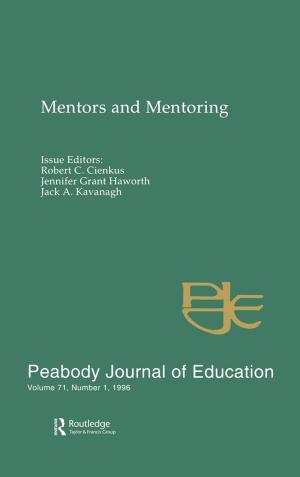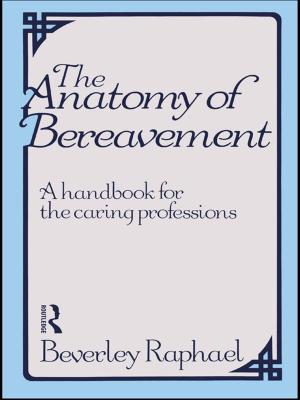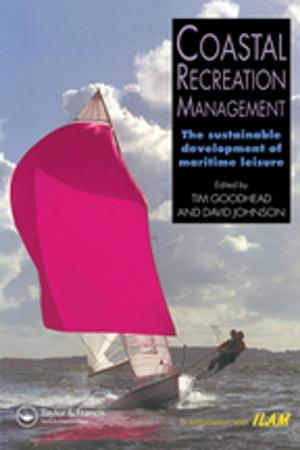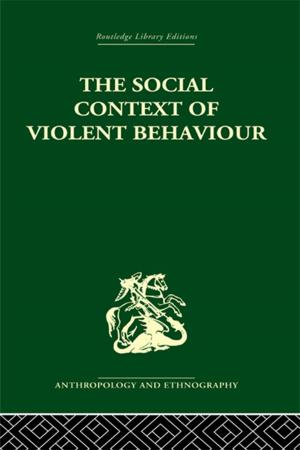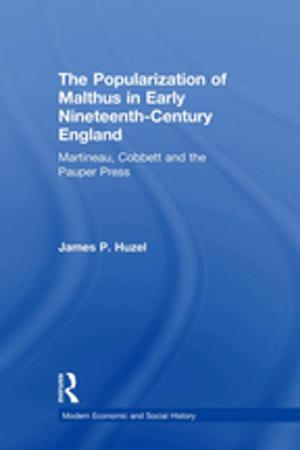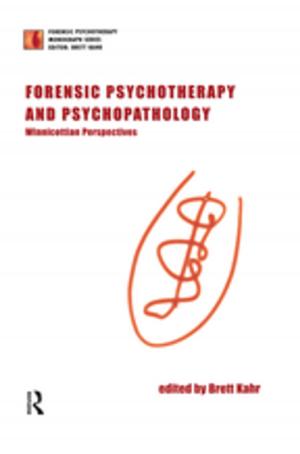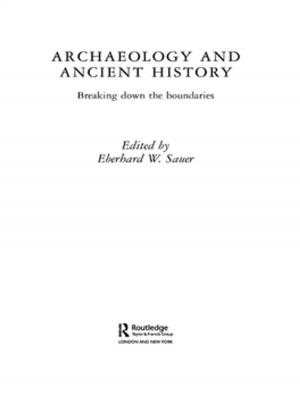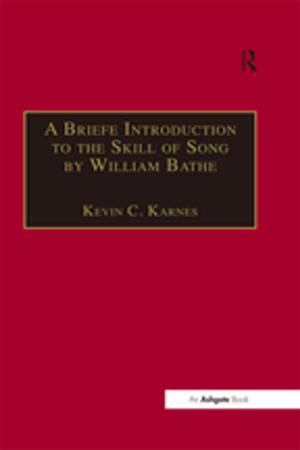Education and Free Will
Spinoza, Causal Determinism and Moral Formation
Nonfiction, Reference & Language, Education & Teaching| Author: | Johan Dahlbeck | ISBN: | 9780429942327 |
| Publisher: | Taylor and Francis | Publication: | October 9, 2018 |
| Imprint: | Routledge | Language: | English |
| Author: | Johan Dahlbeck |
| ISBN: | 9780429942327 |
| Publisher: | Taylor and Francis |
| Publication: | October 9, 2018 |
| Imprint: | Routledge |
| Language: | English |
Education and Free Will critically assesses and makes use of Spinoza’s insights on human freedom to construe an account of education that is compatible with causal determinism without sacrificing the educational goal of increasing students’ autonomy and self-determination. Offering a thorough investigation into the philosophical position of causal determinism, Dahlbeck discusses Spinoza’s view of self-determination and presents his own suggestions for an education for autonomy from a causal determinist point of view.
The book begins by outlining the free will problem in education, before expanding on a philosophical understanding of autonomy and how it is seen as an educational ideal. It considers Spinoza’s determinism and discusses his denial of moral responsibility. Later chapters consider the relationship between causal determinism and autonomy, the educational implications of understanding free will and how free will can be utilised as a valuable fiction in education.
This book will be of great interest to academics and postgraduate students in the field of education, especially those with an interest in moral education and philosophy of education. It will also be of interest to those in the fields of philosophy and psychology and specifically those focusing on the free will problem, on Spinoza studies, and on the relation between moral psychology and external influence.
Education and Free Will critically assesses and makes use of Spinoza’s insights on human freedom to construe an account of education that is compatible with causal determinism without sacrificing the educational goal of increasing students’ autonomy and self-determination. Offering a thorough investigation into the philosophical position of causal determinism, Dahlbeck discusses Spinoza’s view of self-determination and presents his own suggestions for an education for autonomy from a causal determinist point of view.
The book begins by outlining the free will problem in education, before expanding on a philosophical understanding of autonomy and how it is seen as an educational ideal. It considers Spinoza’s determinism and discusses his denial of moral responsibility. Later chapters consider the relationship between causal determinism and autonomy, the educational implications of understanding free will and how free will can be utilised as a valuable fiction in education.
This book will be of great interest to academics and postgraduate students in the field of education, especially those with an interest in moral education and philosophy of education. It will also be of interest to those in the fields of philosophy and psychology and specifically those focusing on the free will problem, on Spinoza studies, and on the relation between moral psychology and external influence.


